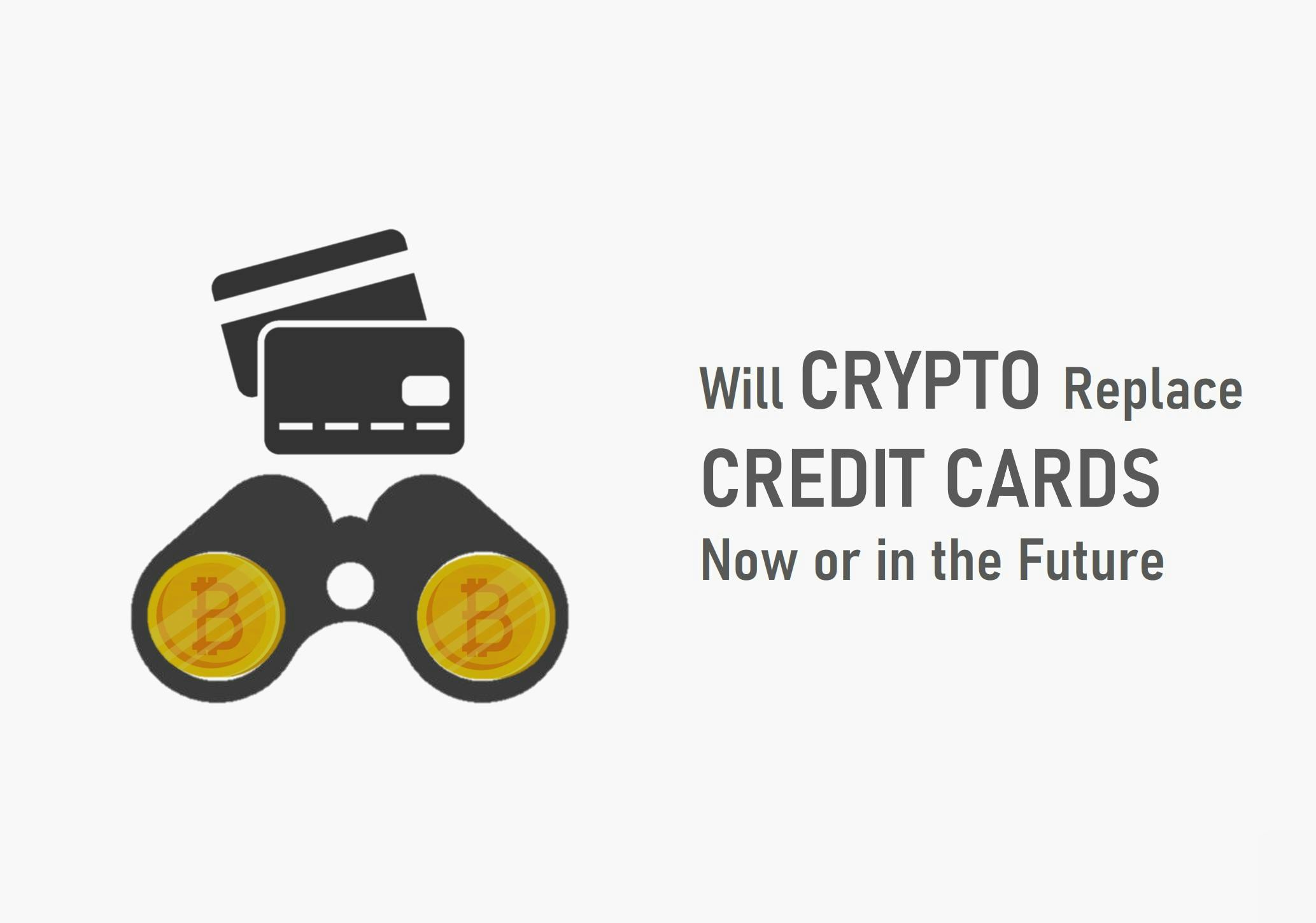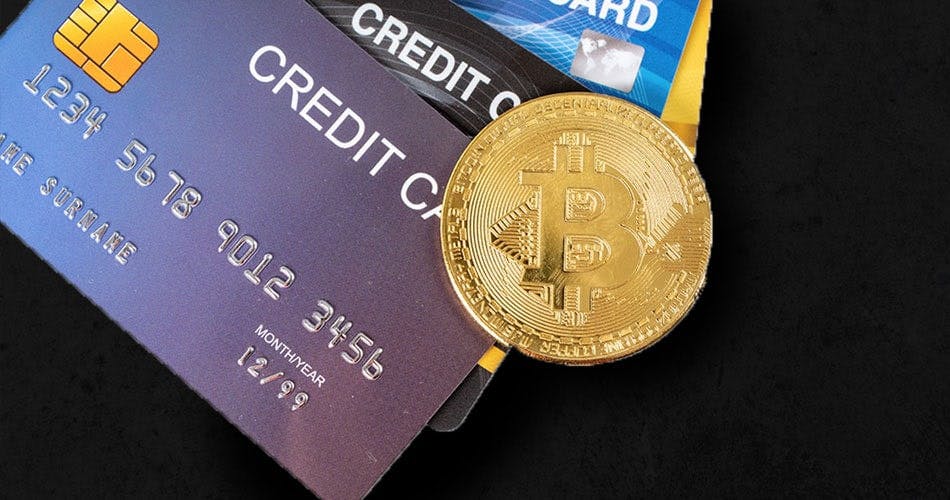
106 years ago, the modern use of credit cards began. On that occasion, Western Union planned and provided a card only to its most select customers.
Then, in the late 1940s, various companies began creating their own credit cards. They didn’t have much in common with the ones we have today.
They were only useful in the establishments of the companies that gave you the card. It was simply a method to attract more customers by facilitating the power “to acquire without physical money.”

Key Takeaways
• There is a potential for digital currency to increase earnings for retailers. This can be achieved if credit cards are replaced by cryptocurrency.
• With the increasing number of identity theft from credit cards, cryptocurrency has become an excellent option for transactions that are more secure with the encryption of its blockchain technology.
70 years ago, New York witnessed the invention of the first credit card: Diner’s Club. This was the product of Frank X, McNamara, Ralph Sneider, and Alfred Bloomingdale.
Since then, credit cards have not stopped evolving. Business transactions became much easier and faster.
Is the era of credit cards over? Will it be replaced by cryptocurrencies? Will they break with tradition?
What’s Cryptocurrency?
Cryptocurrency is not “legal tender” and is not backed by a central government or a bank, it is decentralized and global.
Its form is more like bank credit without the bank, in the sense that it is digitally represented, but not backed by a bank or a government. An algorithm controls the supply and the user cannot pay his taxes with it, instead the user has to pay user taxes on it.
Merits of Cryptocurrency
- There are no intermediaries: Because they are decentralized, no institution or person can regulate it or act as an intermediary to influence its value.
- Security: With the increasing number of identity theft from credit cards, cryptocurrency has become an excellent option for transactions that are more secure with the encryption of its blockchain technology. This keeps your digital assets more secure, reducing the likelihood of theft.
- Without government control: The national government of any country will always have a great influence on the value of fiat money, which in turn affects the economy of a country in general.
So when its value plummets or increases many times, there are governments that already participate with cryptocurrencies. No central bank can have control in this decentralized ecosystem.
SEE ALSO: Best 5 Crypto Credit Cards with Good Earning Rewards
Demerits of Cryptocurrency
- The concept is still strange to many: The whole world, except Sweden, still cannot deviate from the idea of using fictitious money to carry out financial transactions to digital or electronic. It is one of the biggest obstacles. What goes against the nature of man, the new with little information.
- There is great volatility in price: Bitcoin has put cryptocurrencies on the map after a big increase in value, but after a while it fell before picking up again. This type of volatility is unpleasant for anyone thinking of investing in a digital asset.
- Without Insurance: Not having intermediaries and a robust security system to prevent them from being stolen can be a double-edged sword. It means that when the cryptocurrency is lost or stolen, no matter how unlikely this is to happen, there is nothing that can be done to get it back.
Credit Card
Merits
- Speed of uses during payments and cash withdrawals
- Avoids having to travel with cash on you
- Very wide acceptance by traders
- Facilitates online payments
- Reduces the obligation to change currency when traveling outside the euro area
- Inclusion of insurance and assistance in the offer
Demerits
- Difficulty keeping up to date payments made
- Annual subscription
- Does not allow payments between individuals
- Possible charges on cash withdrawals
- Payment and withdrawal are limited
Will Cryptocurrencies Replace Credit Cards?
Imagine that credit cards are prehistoric, being replaced by cryptocurrencies. Many of us ask ourselves that same question, since every invention takes time to become popular and common.
Additionally, as happened with credit cards, adaptations are necessary to facilitate the use of cryptocurrencies.
At the moment, cryptocurrencies seem more like an investment and speculation asset than an exchange asset. However, there are those who trust stablecoins to fulfill this task.
The truth is that some things must change. For example, coins like Bitcoin are designed for a pre-set production limit. If it is planned to be used as currency, some people may not have access to it.
The lack of clarity generates a notorious confusion in the market about what a cryptocurrency is. Also about which regulatory institution in the nation is going to oversee Bitcoin, Ethereum, or Tether.
Also, how investors are or are not protected. There are many other uncertainties that prevent proper market development. Few are the nations that have managed to establish an adequate regulatory framework for the crypto market.
In fact, the United States currently does not have a comprehensive framework that can support businesses, entrepreneurs, or investors.
But there is a potential for digital currency to increase earnings for retailers. This can be achieved if credit cards are replaced by cryptocurrency.
In this way, sellers will be able to reduce payment commissions, which significantly reduce their bottom line.
This is bad news for companies like Visa, and Master Card, which dominate the credit card payment industry – as well as for the banks that issue these cards and are making good money.
But this is good news for bitcoin investors, as it will exponentially increase the speed of decision-making for daily transactions and increase the price of cryptocurrency.
SEE ALSO: How To Buy Crypto With A Credit Card
Frequently Asked Questions
1. How Will Cryptocurrency Affect Credit Cards?
Bitcoin traders also save on credit card fees, which can range from 0.5% to 5%, plus a flat fee of 20 to 30 cents per transaction.
Virtual currency payments dramatically reduce processing fees and eliminate the risk of unnecessary charges.
2. Is the Crypto Card a Credit Card?
Crypto credit cards work much like traditional credit cards, except that they find funds and pay rewards using digital currency, like Bitcoin.
3. Can Crypto Replace Banks?
Yes. Crypto-currencies will push traditional players to re-invent themselves and overhaul their services in order to adapt to their clients’ needs.
There is no doubt about the ability of banks to integrate them into the mix of investments already offered to diversify their offer; it is just a matter of time for these cautious institutional players.
Final Thoughts
Cryptocurrency is one phenomenon that has constantly been imposing itself in the digital space. Given time, cryptocurrencies might just take the place of credit cards making it a thing of the past.
Read More




